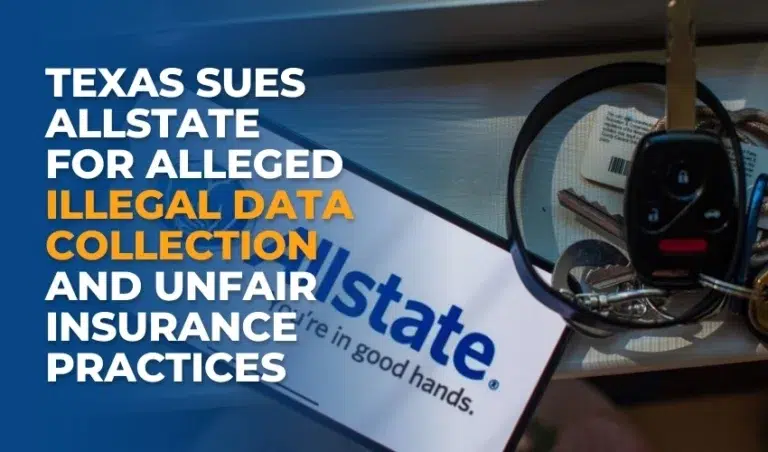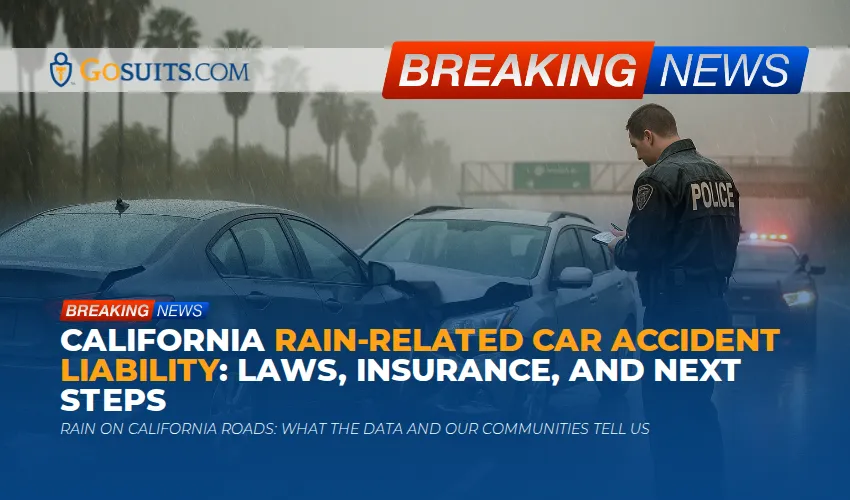Texas Attorney General Ken Paxton has filed a lawsuit against Allstate Insurance and its subsidiary Arity, accusing them of unlawfully collecting, using, and selling driving data from millions of Americans to raise premiums and deny coverage.
The Allegations
The lawsuit, filed in a Texas state court, alleges that Allstate and Arity engaged in a massive data collection operation, creating what they claim to be the “world’s largest driving behavior database.” This database reportedly contains sensitive driving data from over 45 million consumers across the United States, obtained without their consent.
According to Texas Attorney General Ken Paxton, Allstate paid millions of dollars to mobile app developers to embed tracking software into popular apps like Life360, GasBuddy, and Fuel Rewards. This software allowed Allstate to collect detailed geolocation and driving behavior data, including speeding habits, sudden braking, and even cellphone use while driving. The data was then used to justify raising premiums, denying coverage, or dropping policyholders entirely.
One significant issue with this data collection method, as highlighted by Paxton, is that the system failed to differentiate between drivers and passengers using these apps. For example, a passenger using Life360 could be flagged as a “bad driver” based on the vehicle’s movements, leading to unfair penalties or higher insurance costs.
Expansion to Automaker Data
In addition to app-based tracking, Allstate allegedly purchased data directly from automakers, including Toyota, Mazda, Lexus, and Stellantis brands like Chrysler, Jeep, and Ram. This data allowed Allstate to refine its tracking by pinpointing when policyholders were driving, rather than relying solely on cellphone geolocation data.
The lawsuit claims that Allstate used this vast trove of data to profit in several ways:
- Adjusting rates based on driving behavior data, often without notifying or obtaining consent from consumers.
- Denying or canceling policies for drivers deemed high-risk based on the collected data.
- Selling the data to other insurance companies for further profit.
Legal Violations and Consumer Harm
Paxton’s office argues that these practices violated the Texas Data Privacy and Security Act (TDPSA), which requires companies to provide clear notice of data collection practices and obtain informed consent. By embedding tracking software in apps and purchasing data from automakers, Allstate allegedly sidestepped these requirements, leaving millions of Texans unaware that their driving habits were being monitored and sold.
The lawsuit accuses Allstate of engaging in unfair and deceptive acts, breaching consumer trust, and creating financial harm by manipulating insurance premiums based on secretly gathered data.

Consequences Sought by Texas
The lawsuit demands that Allstate:
- Delete all unlawfully collected data: To ensure the privacy of affected consumers, the Attorney General’s office is seeking the complete destruction of the driving data database.
- Provide restitution: Compensation for drivers who were unfairly charged higher premiums, denied coverage, or had their policies canceled.
- Pay penalties: Civil fines of up to $10,000 per violation under Texas law.
Paxton has vowed to hold companies accountable, emphasizing, “Texans deserve better, and we will hold all these companies accountable.”
A Broader Pattern of Invasive Practices
This isn’t the first time Paxton has taken legal action against companies for alleged illegal data collection. In August 2024, his office filed a similar lawsuit against General Motors, accusing the automaker of using in-vehicle technology to collect and sell data from 14 million cars since 2015. In that case, Paxton argued that consumers purchased vehicles—not surveillance systems designed to profit off their private information.
As of now, Allstate has not responded to the allegations or requests for comment. The company, headquartered in Northbrook, Illinois, has yet to release any statements addressing the lawsuit or its data practices.

A Call for Consumer Protection
This case stresses growing concerns over data privacy and the use of invasive technologies in everyday consumer interactions. The Texas Data Privacy and Security Act was designed to protect Texans from precisely this type of exploitation. Paxton’s lawsuit serves as a reminder to companies that compliance with privacy laws is not optional.
Whether or not Allstate is ultimately held accountable, this lawsuit signals a broader effort to ensure that consumers’ personal information remains private and secure. Texans—and all Americans—will be watching closely as this case unfolds.
When corporations overstep boundaries or violate privacy laws, it is beneficial to have reliable legal representation to protect your rights and hold them accountable. If you believe you’ve been unfairly treated by an insurance company or suspect your personal data has been used without your consent, we’re here to help. Our team at Gosuits understands the complexities of privacy law, data misuse, and unfair business practices. Reach out to us today for a consultation, and let’s discuss how we can advocate for your rights.







